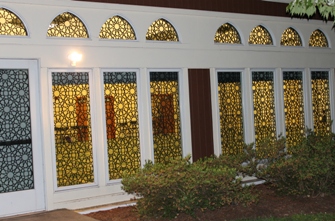ICB Conversations Theme 3
Seerah and Classical History of Islam
Dr. Abdul Rehman
Third Sunday of the Month
11:30 AM - 12:45 PM
Main Prayer Hall
Topic Overview
This series will examine the seerah of Rasul-Allah (pbuh) within its context as
well as its implications on our times and life. Through a dynamic examination
of the Prophet’s life amongst the Sahaba, their society, socio-political environment,
circumstances, successes, failures and mistakes, we can explicate the guidance that
Allah tells us in the Qur’an that we can obtain by examining the lives of people
and nations that lived before us. Thus, we try to emulate their successes by
approximating their societal experience to our reality and also avoid repeating
their mistakes.
Lecture Schedule
Brother Omer received his M.A. in Near Eastern Studies, with a specialization in Islamic Studies, from Cornell University's Department of Near Eastern Studies. He also holds an M.S. in Communications and a B.A. in English from Cornell, and is at present completing his pastoral studies in Hartford Seminary's Islamic Chaplaincy Program.
Biodata of the Speaker:
Dr. Mohamed, the current President of the Islamic Council of New England, is the CEO of the Boston-based
AIM International, Inc. a strategic cooperative alliance group specializing in the transfer
of innovative technology to developing countries.
Dr. Mohamed’s specialization in Interdisciplinary Cognitive and Development Communication, the science
mediating human knowledge, made him the first “Third World” Professor of Mass Communication
and Public Relations in the Boston University’s College of Communication. Simultaneously, he held
Associate Faculty positions in the Graduate School, Center for International Relations, African
Studies Center and the African-American Studies Center. He was naturalized as a US citizen on
the basis of Permanent Residency in the Immigration category of "Outstanding Professor."
Dr. Mohamed earned his Interdisciplinary Doctoral degree from the BU’s University Professors Program
and a Master of Science at Boston University’s School of Public Communication in Publishing,
Advertising and Marketing Management. At the University of Khartoum, he studied history,
philosophy, political science, languages, and law.
His scholarship in Islamic Studies started at the age of four in the Khalwa [Religious Madrasah]
of the famous Late Sheikh Khojali in Khartoum North, where he studied Qura~an, Hadeeth and
Arabic language. He studied Fiqh, Tafseer and Sierah under the guidance of his late father
Sheikh Haj Ibrahim Mohamed Abdel-Rahman Al-Nu^amaan (Al-Barbary). During his university years
in Khartoum, he started his pioneering integrative studies of Islamic Intellectual History.
Applying his Integrative Multi-Contexts Processual Analysis, he has developed
a freshly unique Sunni approach to Islamic Texts and History.

